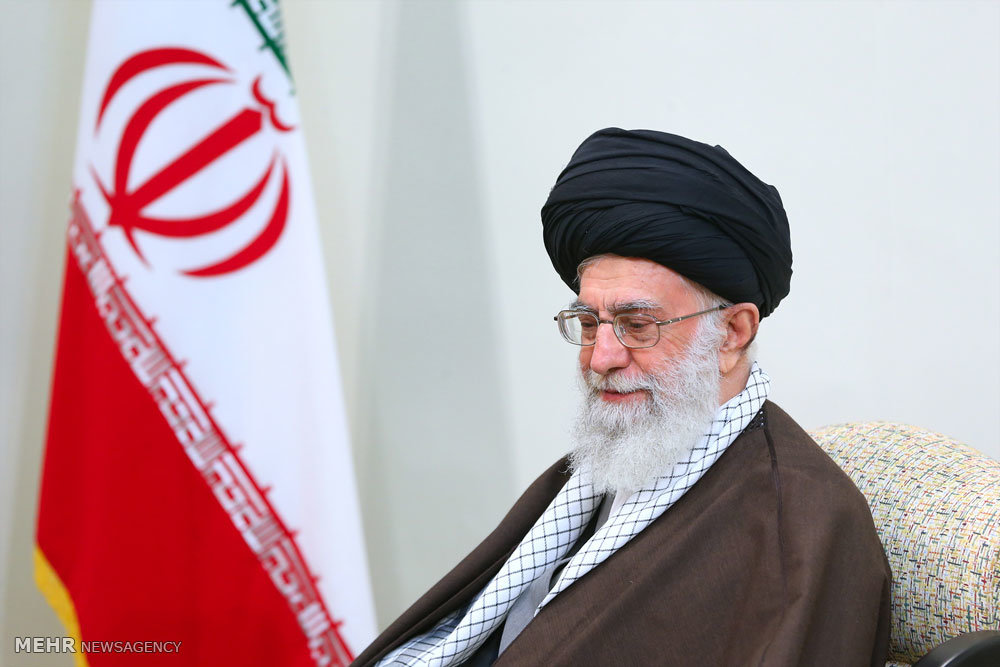Supreme Leader’s messages highlight importance of economy

The fact that Iran’s highest authority, Supreme Leader of the Islamic Revolution Ayatollah Seyyed Ali Khamenei, has named the Persian New Year “Resistance Economy” shows that he has admitted that the country’s economy is in dire need of attention.
Ayatollah Khamenei has been naming Iranian years after religious figures and concepts since 1999. But he has focused on economy over the past seven years, using the word “economy” in the titles of four years.
Every year, the Supreme Leader names the Iranian years that start from March 20 or March 21 in order to draw the attention of the officials and the people to a “value as well as a problem”.
Before 2009, titles of the years included the names of figures like Imam Khomeini (the founder of the Islamic Republic of Iran), Imam Ali (the first Shia Imam) and The Prophet (Muhammad).
Values and concepts like the Honor and Dignity of Hossein (the third Shia Imam), Service, Responsibility, National Unity and Islamic Solidarity, and Innovation were used in the titles of the years as well.
Since 2009, however, it seems that one issue has been standing out: Economy.
This is while Iranian officials barely admitted that international sanctions over its nuclear program - first slapped by the United Nations Security Council in 2006 - had any effect on the country’s economy. They always described the sanctions as an “opportunity” for them to rely on their domestic capabilities.
However, the Islamic Republic made the decision to prescribe “resistance” for its ailing economy since 2010, after U.S.-led sanctions against it gained momentum.
The strategy was an attempt to thwart the effects of the sanctions and accelerate the implementation of a long-awaited plan to reduce the country’s reliance on oil exports.
The idea to adopt a “resistance economy” came from Ayatollah Khamenei, who announced it in a speech in summer 2010. He later proclaimed the new year (staring march 2011) as the “Year of Economic Jihad.” Twelve months after that, the Supreme Leader proclaimed the “Year of National Production,” encouraging authorities to produce a revolution in the country’s economy in defiance of Washington’s demand that Tehran abandon its nuclear energy program or face continued economic punishment.
The United States, however, slapped new sanctions on Tehran, leaving large parts of Iran’s nearly one-trillion-dollar economy disconnected from the rest of the world.
Ayatollah Khamenei dubbed the next year (2013) “Year of Political and Economic Epic” and the year after that (2014) “Year of Economy and Culture” in an indication that the economy had to be placed high on the agenda of relevant officials.
It goes without saying that the economic pressure caused by the sanctions was one of the reasons Tehran agreed to the nuclear deal reached between Iran and the P5+1 powers in Vienna in July 2015, the year that had been dubbed by Ayatollah Khamenei “Year of Nation and Government”.
After the nuclear deal was struck, the Western side, particularly the U.S. did not fully honor its commitments. So Ayatollah Khamenei named the new year (2016) “Resistance Economy: Determination and Action”. This shows that the highest authority in the Islamic Republic is gravely concerned about the economic situation and financial well-being of the people. His message is that economy is the top priority at the present.
(The article is written by Omid Sohrabi-Nik)
Leave a Comment